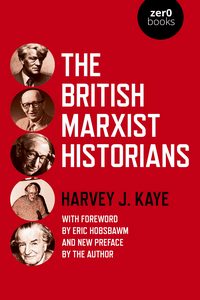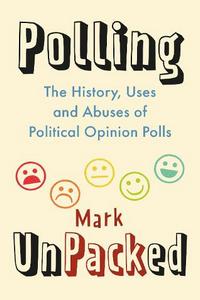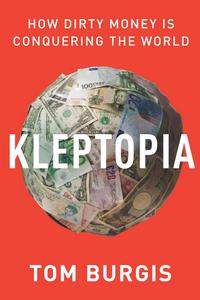Book reviews – Kaye / Pack / Burgis
Marxist Historians (only)
 The British Marxist Historians. By Harvey J. Kaye, Zed Books, 2022
The British Marxist Historians. By Harvey J. Kaye, Zed Books, 2022
This is an update to a book first published in 1984. It’s a study of an influential group of academic historians, but there are wider lessons to be learned. They were mainly active in the second half of the twentieth century. Kaye’s survey is mainly confined to the following writers and books.
Maurice Dobb in Studies in the Development of Capitalism (1946) wrote on the transition from feudalism to capitalism. For Dobb the ‘bourgeois revolution’ of the seventeenth century provided the necessary foundation for the later Industrial Revolution. Dobb emphasised the role of class struggle in this process.
Rodney Hilton focussed on feudalism and the English peasantry. For instance, in the Peasants’ Revolt of 1381 there emerged a ‘positive class consciousness’ which ‘was initiated from within peasant society.’ Hilton argued that ‘one of the most important if intangible legacies of mediaeval peasants to the modern world is the concept of a freeman, owing no obligation, not even deference, to an overlord’ (Bond Men Made Free, 1973).
Christopher Hill wrote extensively on the English Revolution of the seventeenth century, though probably his best work is Reformation to Industrial Revolution: A Social and Economic History of Britain, 1530-1780, (1969). The English Revolution was ‘the world turned upside down’. In Hill’s account: ‘Levellers called for political democracy, Diggers for communism, Ranters for free love. Others called in question the common law, the Bible, the existence of heaven and hell, God and the devil’ (John Bunyan and the English Revolution, 1979).
Eric Hobsbawm wrote on workers, peasants and world history. Industry and Empire (1969) is a commercially successful social and economic history of Britain from 1750 to the 1960s. His examination of the development of the modern world, what he called ‘the long nineteenth century’, is divided into three phases: The Age of Revolution, 1789-1848 (1962), The Age of Capital, 1848-1875, (1975), and The Age of Empire, 1875-1914 (1987). These books probably made Hobsbawm Britain’s most famous ‘Marxist’ and historian.
E.P. Thompson’s The Making of the English Working Class (1963) is one of the biggest selling non-fiction books in Britain. It is still widely used as a school and university textbook. His statement on the role of the historian was Thompson’s contribution to an understanding of class:
‘I am seeking to rescue the poor stockinger, the Luddite cropper, the ‘obsolete’ hand-loom weaver, the ‘utopian’ artisan… from the enormous condescension of posterity. Their crafts and traditions may have been backward-looking. Their communitarian ideals may have been fantasies. Their insurrectionary conspiracies may have been foolhardy. But they lived through these times of acute social disturbance and we did not. Their aspirations were valid in terms of their own experience; and if they were casualties of history, they remain, condemned in their own lives, as casualties.’
In William Morris: Romantic to Revolutionary (1955) Thompson defended what he called ‘Morrisian-Marxism’. According to Kaye, this is ‘a Marxism transformed by the concerns and values represented in the work of William Morris’. The Poverty of Theory (1978) is Thompson’s attack on the then growing popularity of interpreting Marxism as a form of structuralism.
Kaye pulls together a useful survey of some key Marxist historians and how they grappled with Marxism and history. The trouble was, and remains, their politics. Their collective contribution as historians has been called ‘history from the bottom up’, but their politics can be termed ‘politics from the top down’, and it calls into question their understanding of Marxism. All the above historians were at one time members of the Communist Party of Great Britain (CPGB).
After the suppression of the uprising in Hungary by the Russian military in 1956 all the above resigned from the CPGB – except Hobsbawm and Dobb. Hobsbawm remained in the CPGB until its break-up in 1991. As a cheerleader for the CPGB and the Russian empire, Hobsbawm defended the leading role of the party advocated by Lenin, and dismissed the view that the emancipation of the working class had to be the work of the working class itself – the cornerstone of any Marxian politics. Thompson later tried to justify his CPGB membership by claiming it was part of a ‘Popular Front’ against fascism. But he did not appreciate that his CPGB membership would lend legitimacy to Stalin’s reign of terror. His concern for the lives of ordinary workers did not extend to the working class in Russia, Eastern Europe and elsewhere. Later in life, after Thompson had joined the Labour Party, he rebuffed an approach by the Socialist Party to discuss ‘Morrisian-Marxism’.
LEW
Polls apart?
 Polling Unpacked. By Mark Pack. Reaktion Books. 2022.
Polling Unpacked. By Mark Pack. Reaktion Books. 2022.
This is written by the founder of PollBase and traces the history of opinion polls from various ‘straw polls’ in the nineteenth century that were conducted to test public opinion, to the development of what we now know as modern opinion polling. This was pioneered by the US Literary Digest in the early twentieth century, before the game-changing entrance of George Gallup into the sphere, who recognized that the total number of people polled was far less important than how representative these people were.
Opinion polls – as developed over recent decades – have a somewhat mixed reputation, though tend to be more accurate than people often think, at least when the margin for error (typically +/- 3 percent) is taken into account. And of course, sometimes voting systems – especially First Past The Post (FPTP) – throw up vagaries of their own. Trump won the US presidency in 2016 even though he lost the popular vote by a very similar margin to that predicted by the polls, as in 1951 and February 1974 the party with the most votes in the UK did not get the most seats and form the government, which means that even when voting intention polls are broadly right they can sometimes appear ‘wrong’.
But some polling does genuinely go awry, including when Cameron secured a narrow overall Tory majority in 2015 when the polls had predicted a dead heat with Labour and then with the underestimation of the Labour vote in 2017. There are a number of reasons for polling errors and they can be complex, including the wording of key questions, which can provide startlingly differing results based on the smallest nuances (polling on single issues rather than overall voting intention is notoriously problematic for this reason alone). Arguably the most common voting intention issue, however, is the difficulty of getting accurate, weighted national samples when the demographics of society are changing fast. There are also significant allied issues like some types of voters becoming more inclined to turn out (or not) than others, some being disproportionately reluctant to give their real voting intention to pollsters saying ‘don’t know’ or ‘won’t say’ instead, differential willingness among particular party supporters to even participate in polls in the first place, and people being sampled in polls who are not actually on the electoral register for various reasons. Significant polling errors are usually caused not by one factor like this, but by more than one of them working in concert to skew the result.
A new type of polling has recently arisen to address some of these issues for FPTP elections called Multi-level Regression with Poststratification (MRP). This aims to generate constituency-by-constituency predictions from a national poll sample that normally wouldn’t be considered large enough for these purposes. It is based on demographic information in particular seats being used as the basis for projecting a result informed by what the national sample has been indicating about certain types of voters and their probability of voting in particular ways (eg, white men over 65, having say, a 55 percent probability of voting Conservative). Its track record so far – both in 2017 and 2019 in the UK – has been pretty good, including YouGov’s detailed MRP prediction of parts of the Red Wall going Blue, but it is early days.
Pack is clearly an expert and does a good job at unpacking all this (pun intended). How useful polls are is another issue of course, and Pack looks at this too. Echo chambers can have a particular but limited use and many argue that polling is given far too much prominence. There can also be a commercial aspect and a distorting element to polling, especially in the United States where skewed ‘paid for’ polling by political parties and groups is more common. In some countries, polling is banned completely during election campaigns lest it be deemed to influence the result.
Will opinion polling have a use of sorts in socialism? Possibly, though direct democracy and decision-making is likely to feature much more heavily and so the need for polls may well lessen. And hopefully, to paraphrase the late Tony Benn, we will be busy creating signposts rather than following proverbial weather vanes.
Material Interests
 Kleptopia: How Dirty Money Is Conquering the World. By Tom Burgis. William Collins £9.99.
Kleptopia: How Dirty Money Is Conquering the World. By Tom Burgis. William Collins £9.99.
Tom Burgis is an investigative journalist at the Financial Times. Here he provides a detailed account, backed up by meticulous referencing (often via interviews), of how some extremely rich and powerful people obtain their wealth and then move it around to ensure secrecy and keep it away from the prying eyes of tax collectors and supposed regulatory agencies.
Much of the action is connected to Kazakhstan, a former republic of the USSR, which became a base of private capitalism, run by oligarchs. Until recently, the president was the authoritarian Nursultan Nazarbayev, formerly boss of the ‘Communist’ Party. The country has lots of natural resources (oil, uranium, copper, chromium, etc), and much of this is owned by just three capitalists, referred to here as ‘the Trio’. They set up the Eurasian Natural Resources Corporation (ENRC), with a listing on the London Stock Exchange and an office in London, though that was later transferred to Luxembourg when regulators started to take too close a look. ENRC is officially a public company, but in practice is controlled by the Trio, who use it to move to the West the profit they make from exploiting Kazakh workers.
Their interests extend to Africa too. In Zimbabwe the resources are platinum, gold and diamonds, while Congo has vast reserves of copper. In 2009, ENRC bought a Zimbabwean mining company for nearly $1bn. Africa is attractive to investors in mining and raw materials: in other parts of the world, ownership of land and its resources are pretty much tied up, but in Africa they are often available to anyone with the right contacts and appropriate amounts of money. Even Robert Mugabe’s departure from power in 2017 had little impact on the tycoons.
Burgis also goes into detail about the armies of lawyers, private detectives and PR people who defend the ultra-rich and their reputations. He himself received a letter from a law firm accusing him of corruption and asking him to hand over details of the ‘third parties’ who had allegedly paid him to make his accusations. Various other people get a mention too: Tony Blair was a consultant to Nazarbayev for a while, Nazarbayev’s son-in-law bought a mansion from Prince Andrew, Donald Trump’s property empire was a convenient way of recycling money. More generally, real estate is an effective way of laundering wealth because of the secrecy involved.
Burgis has no illusions about what is going on: ‘Around the world, corruption has become the primary mechanism by which power functions’ and the kleptocrats aim ‘to seize power through fear and the force of money, and then to privatise that power.’ Maybe this kind of thing has become, as the book says at its close, ‘normal business’, but capitalism of all forms is based on power and the influence of wealth.
PB
One Reply to “Book reviews – Kaye / Pack / Burgis”
Leave a Reply
You must be logged in to post a comment.

A very useful polling website for the UK, that shows predictions for individual constituencies:
Electoral Calculus
https://www.electoralcalculus.co.uk/homepage.html